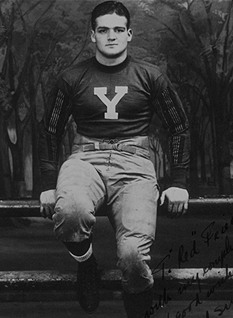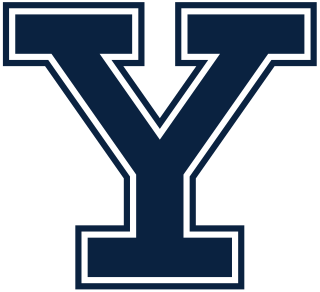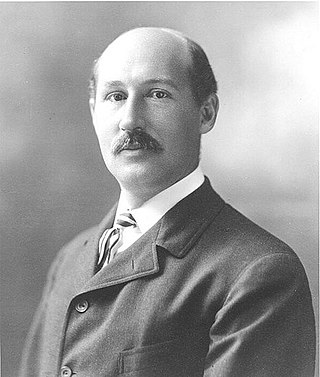Related Research Articles

The La Fayette Escadrille was the name of the French Air Force unit escadrille N 124 during the First World War (1914–1918). This escadrille of the Aéronautique Militaire was composed largely of American volunteer pilots flying fighters. It was named in honor of the Marquis de Lafayette, French hero of the American Revolutionary War. In September 1917, the escadrille was transferred to the US Army under the designation 103rd Aero Squadron. In 1921, The French Air Force recreated a N124 unit who claimed lineage from the war-time La Fayette escadrille and is now part of the escadron 2/4 La Fayette.

Eugene Jacques Bullard was one of the first African-American military pilots, although Bullard flew for France, not the United States. Bullard was one of the few black combat pilots during World War I, along with William Robinson Clarke, a Jamaican who flew for the Royal Flying Corps, Domenico Mondelli from Italy, and Ahmet Ali Çelikten of the Ottoman Empire. Also a boxer and a jazz musician, he was called "L'Hirondelle noire" in French.

William Moseley is an American actor, primarily known for his performances in horror films. His best-known roles include Chop Top in The Texas Chainsaw Massacre 2 (1986), Otis B. Driftwood in Rob Zombie's Firefly trilogy, Luigi Largo in Repo! The Genetic Opera (2008), and The Magician in Alleluia! The Devil's Carnival (2015). He had a recurring role as camp cook Possum on the HBO TV series Carnivàle (2003–05). He has also released records with guitarist Buckethead in the band Cornbugs, as well as featuring on the guitarist's solo work.

Clinton E. Frank was an American football player and advertising executive. He played as a halfback for the Yale Bulldogs, where he won both the Heisman Trophy and the Maxwell Award in 1937. In 1954, he founded the Clinton E. Frank, Inc. advertising agency.

The Lafayette Flying Corps is a name given to the American volunteer pilots who flew in the French Air Force during World War I. It includes the pilots who flew with the bona fide Lafayette Escadrille squadron.

Weston Birch "Bert" Hall was a military aviator and writer. Hall was one of America's first combat aviators, flying with the famed Lafayette Escadrille in France before the U.S. entered World War I.

The Yale Bulldogs football program represents Yale University in college football in the NCAA Division I Football Championship Subdivision. Yale's football program, founded in 1872, is one of the oldest in the world. Since their founding, the Bulldogs have won 27 national championships, two of the first three Heisman Trophy winners, 100 consensus All-Americans, 28 College Football Hall of Fame inductees, including the "Father of American Football" Walter Camp, the first professional football player Pudge Heffelfinger, and coaching giants Amos Alonzo Stagg, Howard Jones, Tad Jones and Carmen Cozza. With over 900 wins, Yale ranks in the top ten for most wins in college football history.

Norman Prince was an American aviator and leading founder of France's Lafayette Escadrille.

Lieutenant Colonel Georges Thenault was the commander of the Lafayette Escadrille – the famed branch of the French air force in World War I composed of American volunteer pilots. The Lafayette Escadrille was created before the United States gave up its neutrality and joined France and Britain in the war against Germany. Once the United States formally entered the war, the Lafayette Escadrille was absorbed into the U.S. Army.
The 1922 College Football All-America team is composed of college football players who were selected as All-Americans by various organizations and writers that chose College Football All-America Teams in 1922. The only selector recognized by the NCAA as "official" for the 1922 season is Walter Camp, whose selections were published in Collier's Weekly. Additional selectors who chose All-American teams in 1922 included: Athletic World magazine, selected by 214 coaches; Norman E. Brown, sports editor of the Central Press Association; the New York Tribune, selected by Ray McCarthy with advice from Grantland Rice and William B. Hanna; Walter Eckersall, of the Chicago Tribune; Frank G. Menke; and Billy Evans, who polled 200 sports editors.
The 1916 College Football All-America team is composed of college football players who were selected as All-Americans for the 1916 college football season. The only selectors for the 1916 season who have been recognized as "official" by the National Collegiate Athletic Association (NCAA) are Walter Camp, whose selections were published in Collier's Weekly, the International News Service (INS), a newswire founded by William Randolph Hearst, and the Frank Menke Syndicate.

The 1911 College Football All-America team is composed of college football players who were selected as All-Americans for the 1911 college football season. The only selector for the 1911 season who has been recognized as "official" by the National Collegiate Athletic Association (NCAA) is Walter Camp. Many other sports writers, newspapers, coaches and others also selected All-America teams in 1911. Others who selected All-Americans in 1911 include New York sports writer Wilton S. Farnsworth, The New York Globe, Minnesota coach Henry L. Williams, The Christian Science Monitor, former Yale stars Ted Coy and Charles Chadwick, and Baseball Magazine.

The 1909 College Football All-America team is composed of college football players who were selected as All-Americans for the 1909 college football season. The only selector for the 1909 season who has been recognized as "official" by the National Collegiate Athletic Association (NCAA) is Walter Camp. Many other sports writers and newspapers also selected All-America teams in 1909. The United Press and The Atlanta Constitution both published their own "consensus" All-America teams based on their aggregating the first-team picks of a number of selectors.

The 1901 College Football All-America team is composed of college football players who were selected as All-Americans by various individuals who chose College Football All-America Teams for the 1901 college football season. The only two individuals who have been recognized as "official" selectors by the National Collegiate Athletic Association (NCAA) for the 1901 season are Walter Camp and Caspar Whitney, who had originated the College Football All-America Team 13 years earlier in 1889. Camp's 1901 All-America Team was published in Collier's Weekly, and Whitney's selections were published in Outing magazine.

The 1900 College Football All-America team is composed of college football players who were selected as All-Americans by various individuals who chose College Football All-America Teams for the 1900 college football season. The only two individuals who have been recognized as "official" selectors by the National Collegiate Athletic Association (NCAA) for the 1900 season are Walter Camp and Caspar Whitney, who had originated the College Football All-America Team eleven years earlier in 1889. Camp's 1900 All-America Team was published in Collier's Weekly, and Whitney's selections were published in Outing magazine.
The 1899 College Football All-America team is composed of college football players who were selected as All-Americans by various organizations and writers that chose College Football All-America Teams for the 1899 college football season. The organizations that chose the teams included Walter Camp for Collier's Weekly and Caspar Whitney for Outing Magazine.
Oscar Carl "Ockie" Anderson was an American football player and coach. He played college football at Colgate University was selected as a first-team All-American in 1916 at quarterback. Anderson later played professional football for the Buffalo All-Americans of the American Professional Football Association (APFA)—now known as the National Football League (NFL). He was one of the leading scorers in the 1920 and 1921 APFA seasons.

Captain Charles Gossage Grey was an American World War I flying ace credited with five aerial victories. He remained in France after World War I. During World War II, he joined the Office of Strategic Services and served with the French Resistance. He continued in U. S. civil service until his retirement in 1961.
Spencer Dumaresq Moseley was an American football player.

Reino Oscar Nori was an American football quarterback who played in the National Football League (NFL) for the Brooklyn Dodgers and Chicago Bears from 1937 to 1938. Standing just 5'7" tall and weighing about 150 pounds, Nori was among the smallest players of his era in the NFL.
References
- ↑ "Three Colgate Men Picked By Camp for All-American Team". The Syracuse Herald. December 26, 1916.
- ↑ George Clark Moseley (1923). Extracts from the Letters of George Clark Moseley during the period of the Great War.
- ↑ Gordon, Dennis (2000). The Lafayette Flying Corps: The American Volunteers in the French Air ... - Dennis Gordon - Google Books. ISBN 9780764311086.
- ↑ "Milestones". Time. May 17, 1937. Archived from the original on January 25, 2012.
- ↑ Joan Cook (May 24, 1991). "S. D. Moseley, 72, Football Star at Yale And Executive, Dies". The New York Times.
- ↑ "Bill Moseley on Instagram: "A salute to my father, Spencer D Moseley, who loved skiing and first brought the family to @vailmtn in 1962. This run's for you, pop!"".
- ↑ "VIRGINIA MOSELEY Obituary (2011) - Chicago, IL - Chicago Tribune". Legacy.com .